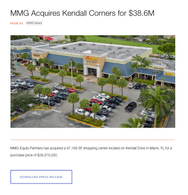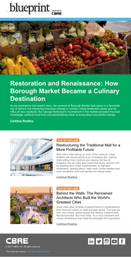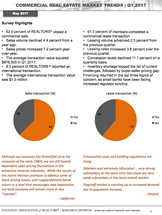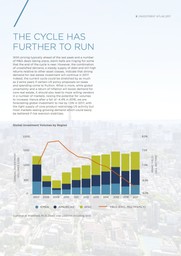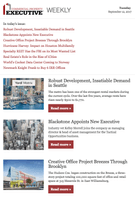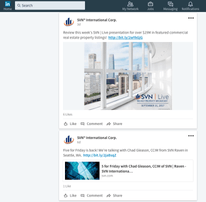
Marketing Best Practices
Tips for Nurturing Commercial Real Estate Leads with Content
One of the biggest challenges for commercial real estate marketing is lead generation. Getting people to your website and into your sales funnel is a huge challenge.
The more you can convert, the better your business will perform, right?
Not always.
Once a lead enters your funnel, they may not be ready for the critical sales conversations you want to have. They may be researching your business, downloading educational information, or preparing for a decision they’ll make in a few weeks or even months.
That’s why nurturing is so important.
Staying top of mind and continuing to provide value to your prospects will ensure they remain engaged with your CRE business long enough to move from lead to real opportunity.
This is a vital part of your overall marketing strategy, and can have a huge impact on the performance rates of every one of your campaigns. Let’s look closer at what kind of content you can use for these nurturing activities and how to ensure they work as intended to keep your business top of mind with prospects.
Thank you email
The first and easiest thing you can do to nurture your new leads is to setup thank you emails for any conversion point on your website.
If someone fills out a form on your website, subscribes to a newsletter, submits a question, or downloads a piece of content, they should receive an email immediately that includes the following:
- A link to the information they requested
- Confirmation of their outreach and an expected response time
- Subscription confirmation and expected email frequency
- Next steps to learn more about your company, either through social media, a blog, or on property-specific websites.
Use this opportunity to build that new relationship and ensure they have everything you want them to know at this stage of the marketing funnel.
Here’s a thank you for subscribing to Real Views email by JLL:
Leasing opportunities
Once a prospect has entered your marketing funnel, you have ample opportunity to follow up with them and provide additional information about your business. Don’t abuse this power, but at the same time, make sure you showcase leasing opportunities whenever possible.
To stay top of mind and ensure your prospects keep your business in mind as they near their leasing decision, you need to send out promotional emails that showcase available properties.
Aim for every prospect on your email list to receive at least one email every 3-4 weeks that showcases these offerings, even when they aren’t in the active sales funnel.
Here’s an example of a office leasing opportunity email created by SharpLaunch:
Company news
There is a fine line every commercial real estate company must walk to ensure they provide optimal value to their prospects.
Information they can use to make a research decision or learn more about your properties is incredibly important, but so too is information about your company that will help them get to know and trust your operation.
This comes in the form of recent sales you’ve made, acquisitions added to your portfolio, partnerships you’ve made, and charity work you perform in the community.
Communicate these pieces through email newsletter updates, in blog posts, and via press release when large enough to warrant it.
Here’s a news article by MMG Equity Partners about their recent acquisition:
Blog Content
Your blog is the most important piece of real estate on your website for establishing expertise. Every article you publish can and should showcase your knowledge about the local commercial real estate market, the industry as a whole, and the benefits of specific properties or property types.
By publishing new articles on a regular basis, writing longform white papers and producing visual content that can be easily shared, you can establish yourself as an expert in the field.
To get the most out of your blogging efforts, find a specific niche on which to focus – something like real estate best practices. Your posts should be beneficial to the reader as well – not just focused on highlighting your properties and making sales, but providing useful information to potential tenants and investors. Get creative and the traffic you can generate will help to grow your business.
Here’s an example of a CBRE newsletter showcasing their expertise about the local market:
Surveys
One of the most effective ways to drive engagement from someone in your marketing funnel and to build a relationship is to ask them a question.
Posing questions on blogs and social media can get people engaged and encourage them to share with your brand.
A survey takes this concept to the next level, incorporating input from both clients and prospects into the decisions you make about your business. By inviting them to provide this feedback you build a relationship that goes well beyond simple information transactions. They become part of how your brand is perceived, and will feel ownership in that.
Surveys should be run periodically – at intervals corresponding to major changes or decisions for your business. They should also be narrow in scope to ensure as many people as possible complete them.
The survey results are another shareable piece of content like the quarterly Commercial Real Estate Market Trends survey by NAR REALTOR:
Market reports, market trends and statistics
Your blog is a powerful resource to showcase your expertise in the field, but you can take this one step further. It’s easy to write about your own properties, but to provide key insights into the market as a whole, you really need your finger on the pulse.
Sending market reports for your area and certain property types, summarizing market trends, and providing context for important statistics can establish you as an expert in the market. If your prospects start to see you as the commercial real estate expert that knows what’s hot, what’s not, and what they should be keeping an eye on, they’ll come to you with questions and buying interest alike.
Here’s a 2017 Investment Atlas by Cushman & Wakefield:
Weekly digest
If you implement the kind of active, highly educational marketing funnel outlined in this article, you’ll be publishing a lot of content.
That kind of content volume can have a hugely positive impact on your business, but it needs to be presented in the right format. Most people won’t visit your blog every week or even see your social media content on a regular basis.
A weekly digest email that compiles everything you’ve been publishing, highlighting the most important and useful content, and showing them that you are very active in the space, continues to build that authority and keep your business top of mind.
CP Executive‘s weekly digest rounds up the latest posts by the news site:
Case studies and testimonials
A recent study in the Washington Post showed that positive social proof is more effective at driving conversions than the opportunity to save money, and over 70% of Americans say they look for a testimonial or product review before they make any type of purchase or buying inquiry.
People are inherently social, and the lack of social proof is innately seen as a detractor. To combat negative impressions and take advantage of the need for social support, add case studies and testimonials to your website that highlight what you have done for other clients.
The more specific, including names, company names, and photographs, the better the social proof will perform at building trust and encouraging new prospects to contact you.
Here’s a case study on how Colliers helped Nike with their real estate needs:
Social Media
Nurturing is all about the relationship you build with your leads. Raw information is useful, but if it doesn’t encourage them to engage with your brand, it may not have the intended effect.
Social media is an incredibly powerful tool because so many people use it and the built-in mentality is one of relationship building. With 91% real estate professionals using social media to some extent, it’s a must for any nurturing activities.
The easiest way to nurture prospects via social media is to share content you’ve been publishing as it goes out. New videos of your properties, recent articles or white papers, or case studies of recent developments can all be highly effective at re-engaging inactive leads.
Another way to maintain that relationship is to take questions from followers. Whether it’s a general customer service question about your website or more specific questions about properties, this can showcase your listings to even more people in a public forum.
Here’s an example of how SVN Inc use their social media to showcase their properties and position themselves as thought leaders in the industry with useful information from commercial real estate experts.
Event participation
Almost everything we’ve discussed in this article has been digital. There are dozens of ways to engage with people online and the tools at our disposal make it easier than ever before.
But there is something inherently trustworthy about meeting and interacting with someone in person. Let your clients and partners know when they can meet you at an upcoming event, share events you’ll be attending with your prospects and subscribers, and be available.
You can do a lot online, but it will never quite replace the impact of an in-person meeting.
Here’s an example by Hendon Properties of how you can let your contacts know where they can find you an an upcoming event:
Conference recap
At the same time, you shouldn’t limit the impact of event attendance to the people you can meet there. Leverage the time you spend in seminars and breakout sessions to share what you’ve learned with your subscribers.
Write a blog post or a weekly update that includes a summary of what you experienced at a recent event. You can amplify the impact of even a single event attended, showcase how active you are in the community, and provide key thought leadership this way.
Here’s a ICSC Recon 2017 recap by Cushman & Wakefield:
The Importance of Well Structured Nurturing
Nurturing for your prospects, leads, and existing clients and partners is invaluable. It allows you to provide important resources that keep your business top of mind, establishes you as a thought leader in the commercial real estate space, and encourages them to come to you with questions or concerns in the future.
Even a couple of new marketing efforts that provide regular updates to the people on your email lists will have a hugely positive impact in growing your audience and that relationship.
Related Blog Posts
CRE Technology
5 Reasons Why Salesforce Needs a CRE Marketing Platform
Salesforce isn’t only the most widely used CRM, it’s also the leading choice in the...
Company updates
Streamline Your Outreach with Tag-Based Email Campaigns
We are thrilled to announce the launch of our new Tag-Based Email Campaign feature, designed...
Company updates
SharpLaunch Announces New Integration with LandSearch
We’re excited to announce a groundbreaking integration with LandSearch, a prominent online...




